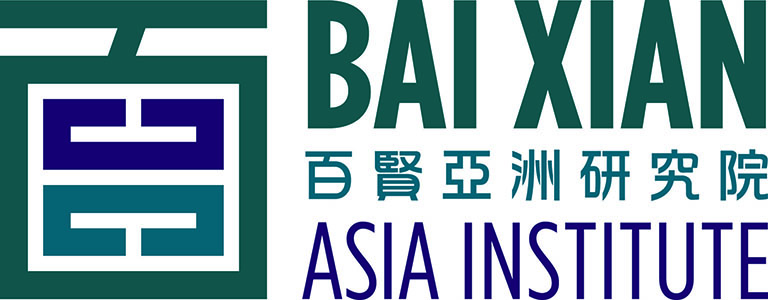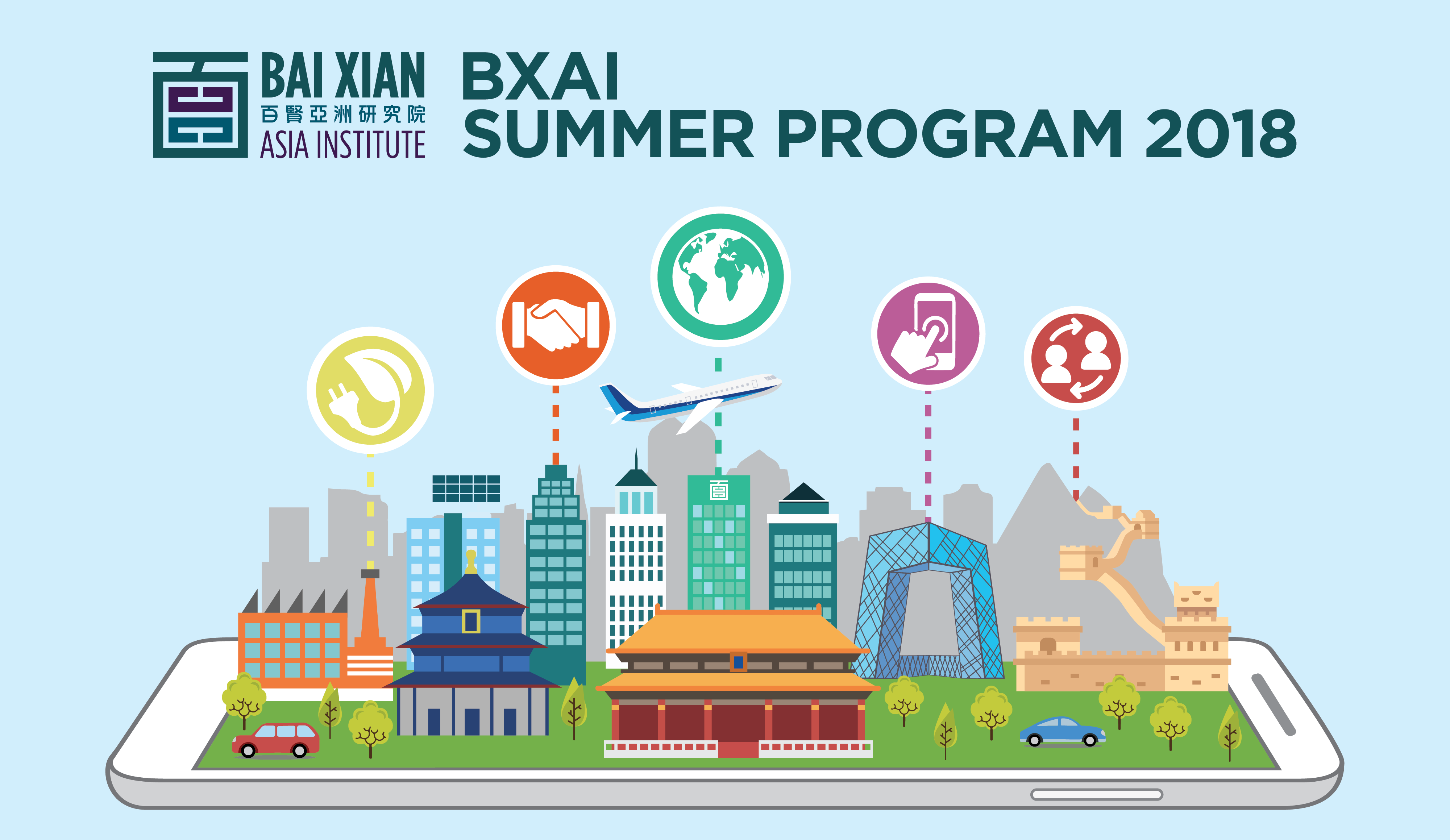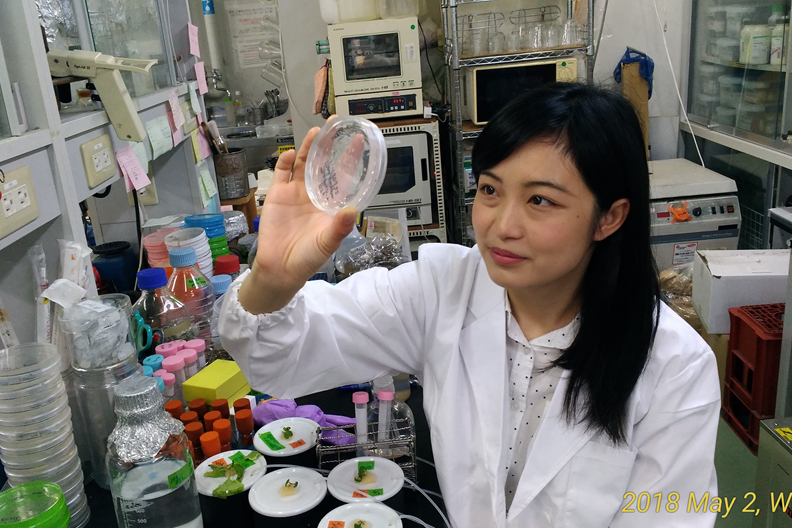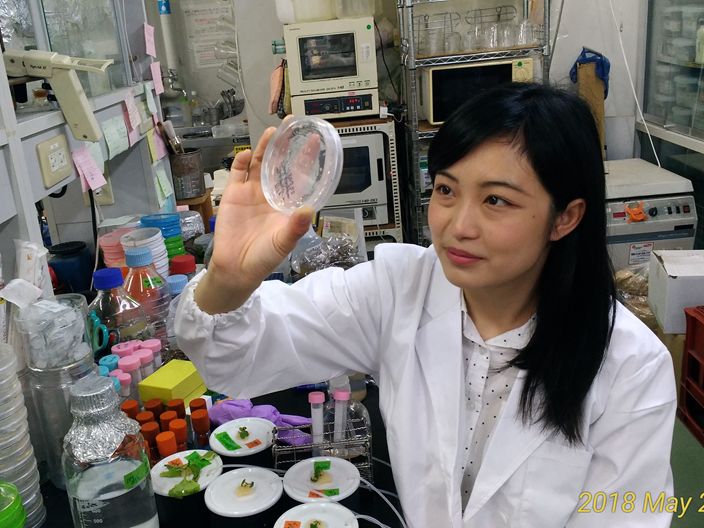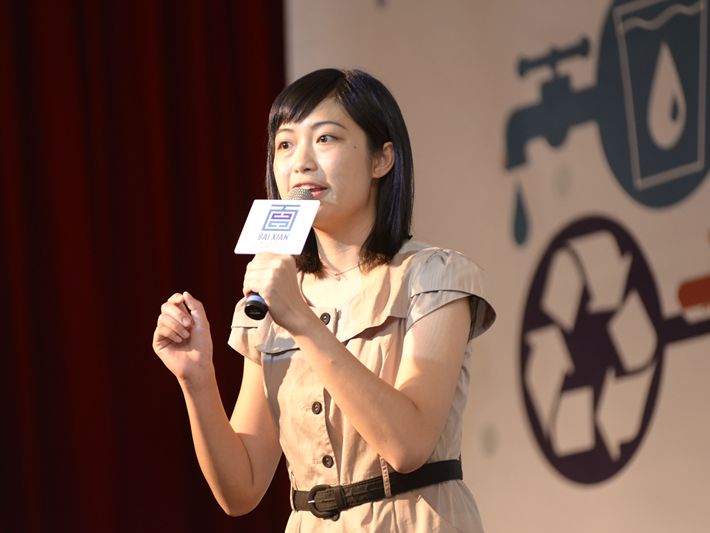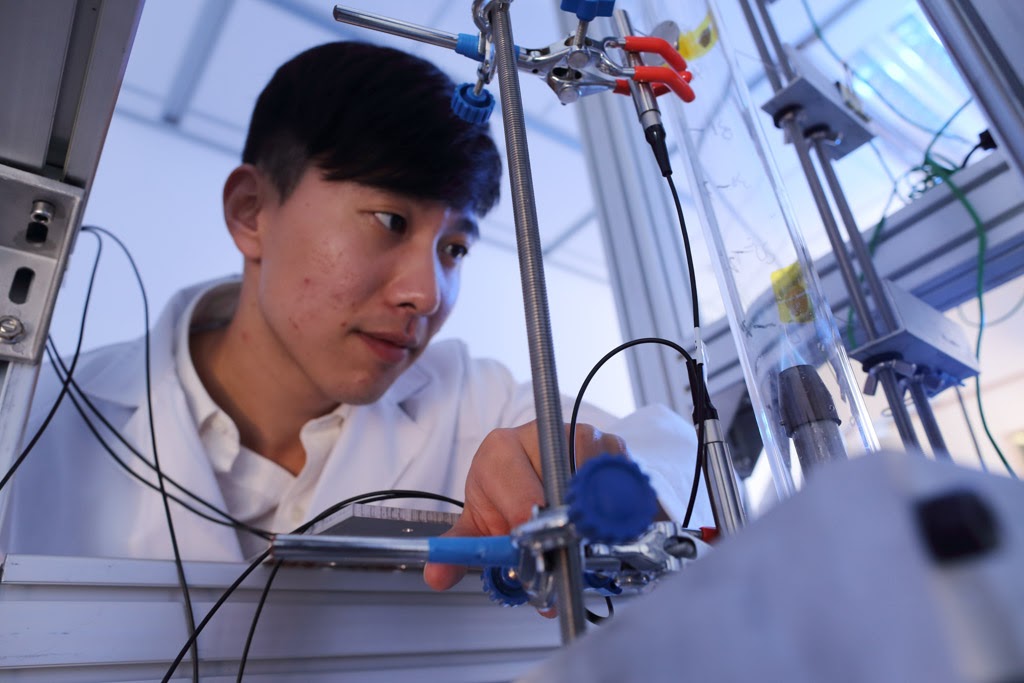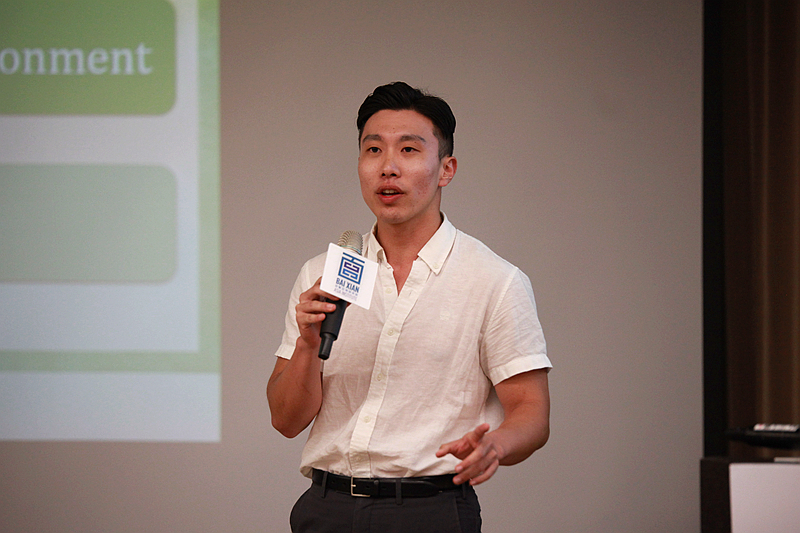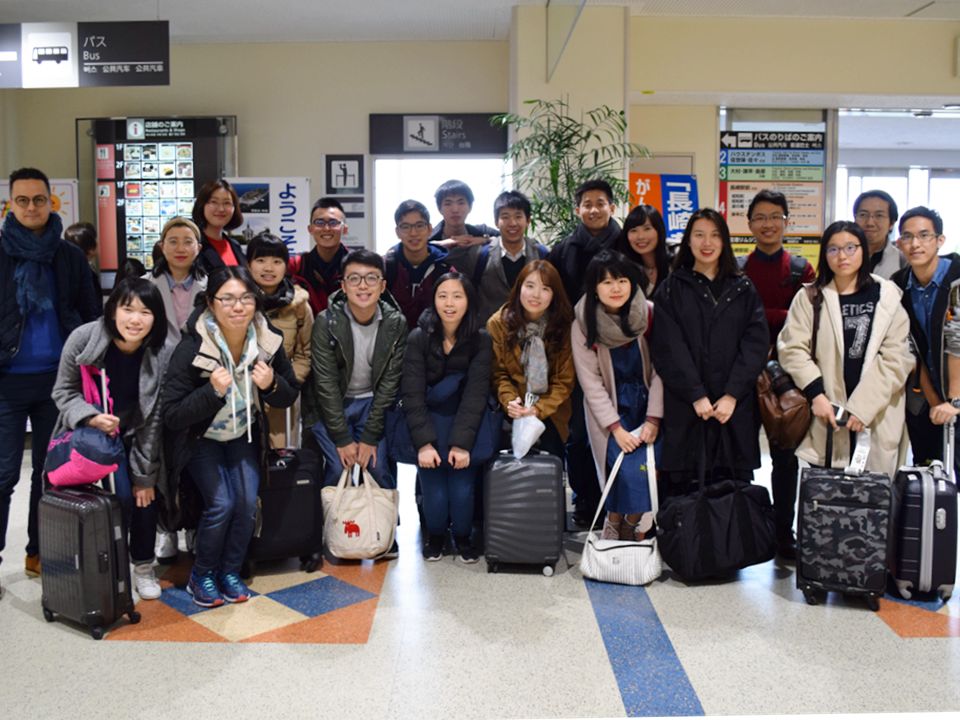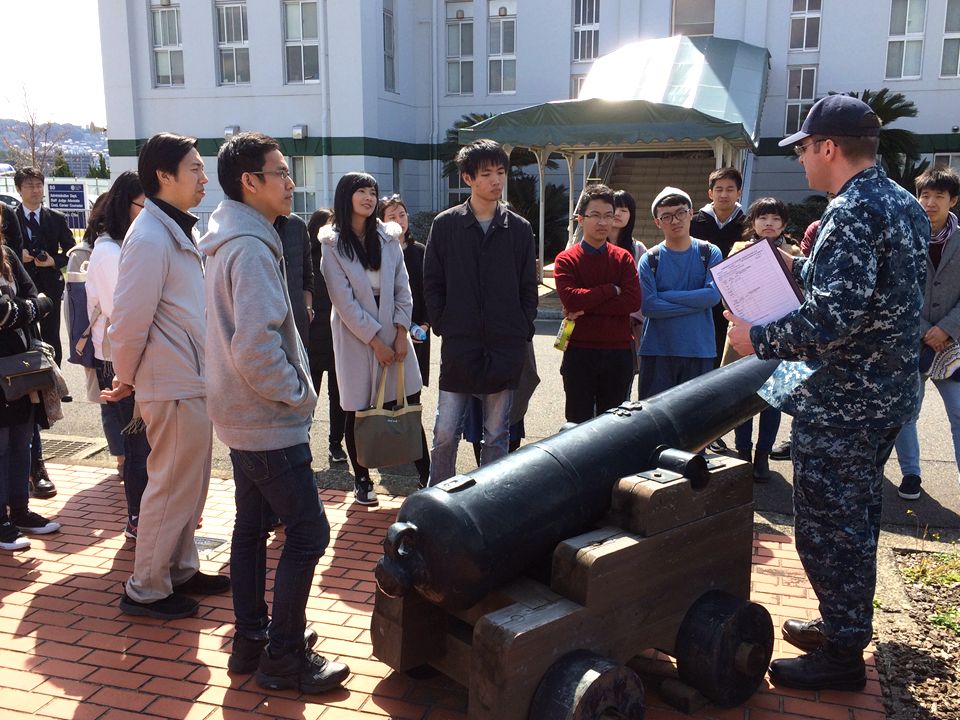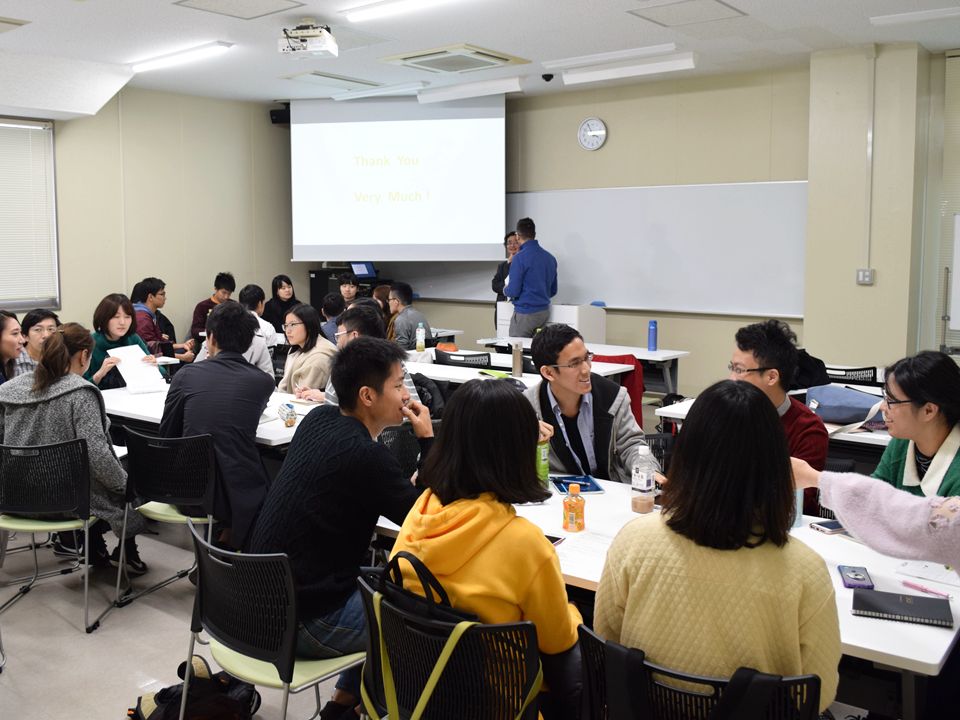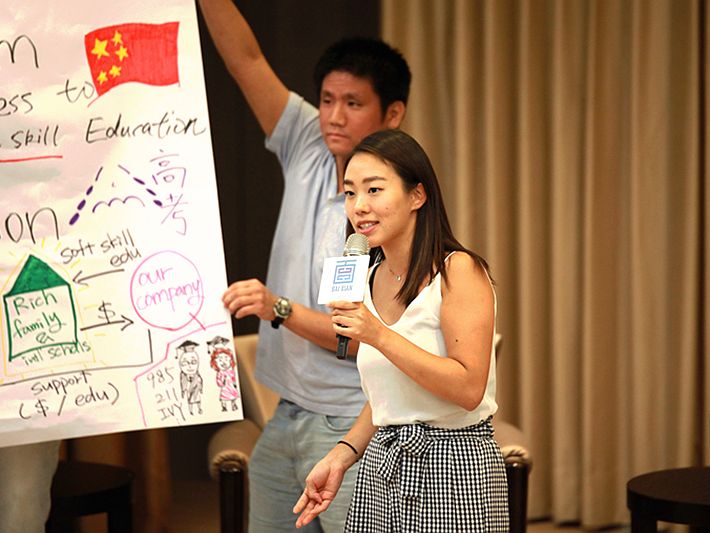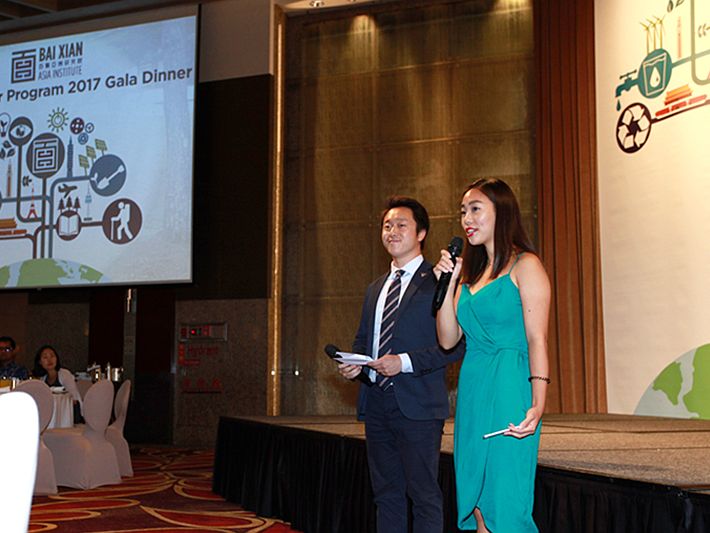Rainbow CHOW
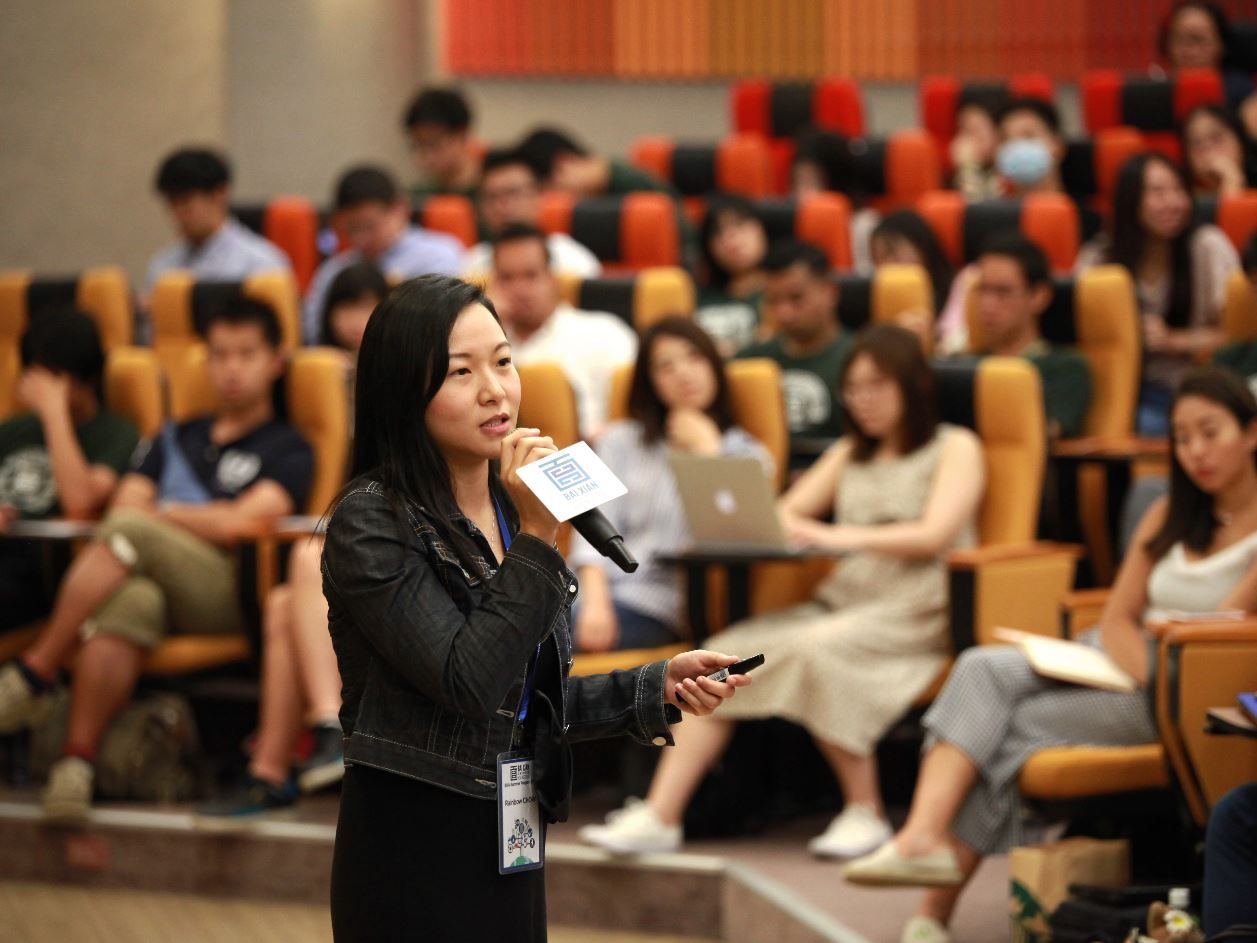
Rainbow Chow is the founder of MicroForests, a social enterprise that aims to empower marginalized women from low-income families by providing training and job opportunities that equip them with life and employability skills, build self-esteem, and encourage self-sustainability. As a panelist at the “Dialogue with Social Entrepreneurs” session at the BXAI Summer Program 2017, Chow spoke about her entrepreneurial experiences and emphasized the importance of setting priorities, staying true to one’s values, and following one’s passion.
Reflecting on how she discovered her passion for her career, Chow recalls having an entrepreneurial spirit and a desire to bring positive change at a young age. At 17, Chow opened a dessert restaurant that employed mentally disabled people and donated sweet soups to the homeless and elderly. This successful foray led Chow to discover her love for business and serving the community. After acquiring her degree in social services management, Chow devoted herself to full-time social work, which allowed her to meet many underserved people and opened her eyes to the needs of society. She realized that her creativity, willingness to take risks, and penchant for learning new things would serve her well in social entrepreneurship, so she went on to set up a child development center and a parenting magazine. While both businesses encountered numerous challenges, Chow insists that each failure did not discourage her but instead drove her to grow and learn.
MicroForests was established in 2014, and the journey so far has been a rewarding one. “Though the work has been tough, seeing these women’s lives being transformed makes it all worth it,” says Chow. “Everyone needs a sense of mission, and I found mine in serving the underprivileged. At difficult times, I’ve relied on my Christian faith and have found strength through the support of my church community. I think it’s important not to be afraid of failure, but to see it as an opportunity to grow, mature, and persevere.”
To students interested in social entrepreneurship, Chow encourages them to go for it. “Don’t ‘wait and see’,” she says. “With youth on your side, you should feel free to take a chance and pursue your passion. Try different things, learn about social issues, and find out what society’s needs are. Don’t just sit there and read about them – to be an effective social entrepreneur, you have to go out, meet people, and see these issues firsthand before you can formulate innovative solutions and effect change.”
BXAI Summer Program 2018 Preview
The BXAI Summer Program 2018 will run from August 3 to 24 at Peking University in Beijing, China. Around 90 students from our 16 partner universities will join us as we explore the theme of “Tradition and Innovation”.
The Program will kick off with an exciting scavenger hunt around Peking University and a three-day, two-night excursion to Shimenshan (石门山), where scholars will engage in outdoor challenges and improvisation workshops that encourage them to exercise their teamwork skills, build confidence, and form new friendships. After returning to Peking University, scholars will participate in a variety of hands-on activities and topic learning sessions that will not only strengthen their leadership and problem-solving skills but also allow them to study East Asia’s geopolitical landscape and develop a greater appreciation for the diverse cultures in our region. The Summer Program will conclude with scholars sharing their learnings with our wider community as BX friends and supporters congregate in Beijing to celebrate the completion of the fourth annual BXAI Summer Program.
Learn more about the BXAI Summer Program here!
Kelvin CHEUNG
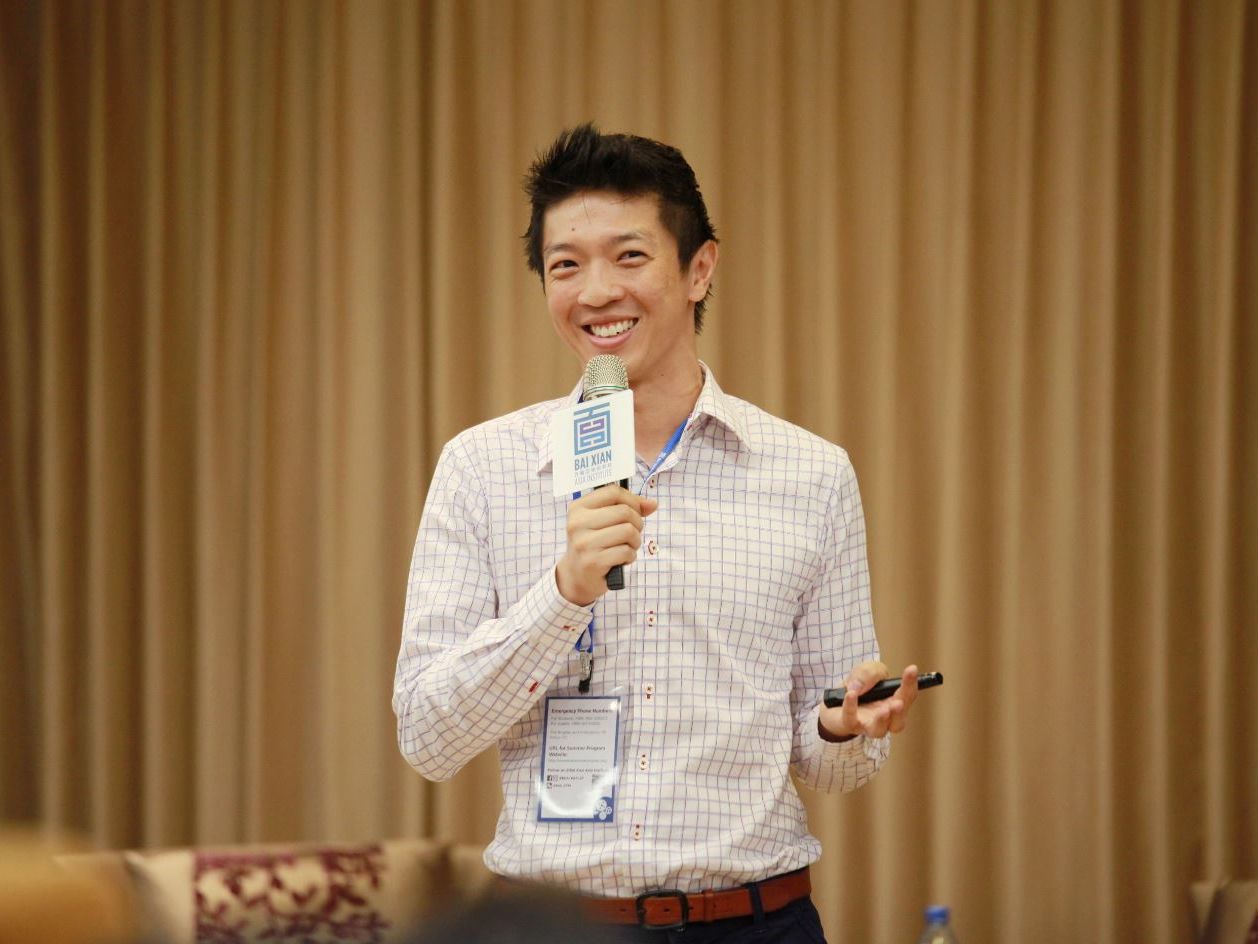
Kelvin Cheung is the COO of The Good Lab, a social innovation consultancy and co-working space that partners with leaders and influencers to drive social change through workshops, grants, networking opportunities, and community engagement programs. As a speaker at the “Dialogue with Social Entrepreneurs” session at the BXAI Summer Program 2017, Kelvin shared with scholars about how The Good Lab aims to find solutions to social issues by bringing people from different political spheres, backgrounds, and socioeconomic classes into the same room and mediating reconciliatory discussions. He is also CEO of UnLtd Hong Kong, an organization that funds and supports early-stage innovators seeking to tackle economic and social inequality in the community.
For Kelvin, a defining moment in his life came early on when he discovered that he had not been accepted into any of the teachers colleges that he applied to. Having dreamed of becoming a history teacher since he was a teenager, Kelvin realized that this apparent “setback” actually opened up new possibilities to explore an alternate course. After spending some time in Beijing studying Chinese, Kelvin decided to pursue a master’s degree in international development, which cultivated his passion for social entrepreneurship and ultimately opened up a new career path for him and led him to where he is today.
“Up until I failed to get into teachers college, it was still a very straight line of what my life was going to be like,” recalls Kelvin. “When you fail and understand that it’s not the end of the world, you realize there are alternative routes that allow you to ‘sidestep and move forward’, and that opens up a world of new adventures, opportunities, and surprises.”
As a leader and entrepreneur, Kelvin encourages fresh graduates and young professionals to take risks and explore in their early career. “At this age, it’s okay to not know what you want to do for the rest of your life,” says Kelvin. “The main thing you need to know is that it is okay to fail, but it’s not okay if you don’t try. In this age of information, you must be able to adapt, stay informed, and keep learning. To me, the important thing is to embody a growth mindset where you keep moving forward, continue asking questions, and pursue lifelong learning.”
Welcoming Our New Advisory Council Members
We are delighted to announce the addition of four new members to the BXAI Advisory Council. With a wealth of experience, expertise, and leadership in their respective fields, they will join the existing Advisory Council in setting a robust strategic direction for BXAI’s future.
Mr. Qiao Zonghuai served as Ambassador Extraordinary and Plenipotentiary of China to Finland, North Korea, and Sweden, among other countries, and also as representative of China at the United Nations Office in Geneva. In the early 2000s, Mr. Qiao was China’s Vice Minister of Foreign Affairs, and later served as a Counselor of the State Council.
Mr. Sakutaro Tanino spent 40 years of his career in the Japanese civil service in roles including private secretary to the prime minister, Director-General of Asian Affairs at Japan’s Ministry of Foreign Affairs, and ambassador to India and the PRC. He was also a visiting professor at Waseda University and Vice Chairman of the Japan-China Friendship Centre.
Mr. Tadashi Yanai is the Chairman, President, and CEO of Fast Retailing Co. Ltd., one of the world’s largest apparel retail companies and the parent company of UNIQLO, J Brand, and Theory, among other brands. He has been an advocate and active supporter of various scholarship programs in Asia including BXAI’s Asian Future Scholarship Program since its early days.
TSAI You-shan
For Taiwanese student TSAI You-shan, an Bai Xian Scholar from Kyoto University, one of her biggest takeaways from her study abroad experience is a deeper appreciation for the many cultures in Asia. “The AFLSP provided me with opportunities to interact with like-minded scholars from many Asian countries. I believe that together, we can develop innovative and impactful ideas that will benefit Asia as a whole,” she says.
Currently researching interactions between plants and microbes, You-shan hopes to develop organic hydroponics (a soilless method of growing plants using nutrient solutions) by screening useful microbes from soil to promote plant growth. “I believe this system of farming will reduce the consumption of chemical fertilizers and make the agricultural industry more sustainable,” she says.
After graduation, You-shan, who is fluent in Chinese, English, and Japanese, plans to work in trans-regional agriculture in Japan to help boost green technology in Asia and beyond.
JEONG Shin Young
It was at BXAI Summer Program 2017 where Jeong Shin Young, an Bai Xian Scholar pursuing a postgraduate degree in mechanical engineering at The Hong Kong University of Science and Technology (HKUST), discovered that his interest in technological innovation and passion for social responsibility could be married to create something meaningful. After meeting with social entrepreneurs at the Summer Program, Shin Young learned that social enterprises could make a profit while achieving specific social objectives. “We need industrial support for innovation-oriented research, and I aim to bridge the academic and tech fields to create new technologies and tackle real-world problems,” he says.
As an undergraduate, Shin Young created an electronic medical kit used to detect certain diseases through human breath. With guidance from his professors, he successfully developed this energy-saving device at a low production cost and was able to introduce it in Cambodian slums. “This experience made me believe that with my knowledge and skills, I can help people and contribute to a better society,” says Shin Young.
Following his graduation, Shin Young plans to become a research assistant. “My goal is to establish my own company to support industrial development through technological innovation.”
Prof. CHAN Kuei-yuan
Chan Kuei-yuan is a professor and associate chair of mechanical engineering at Taiwan University (NTU). He shares about how a childhood obsession with cars evolved into an education in mechanical engineering and stints at various top car manufacturers, ultimately leading him to his current role at NTU where he works with autonomous cars.
AFLSP Scholars Visit Nagasaki Prefecture
This month, a group of scholars and buddies from Waseda University took a three-day trip to Nagasaki Prefecture under the guidance of professors and staff from the university’s School of Political Science and Economics.
The trip kicked off with a visit to Dejima, where students learned about the local culture and history of the area that was once an artificial island. Tours of the Atomic Bomb Museum and National Peace Memorial Hall gave students an opportunity to interact with survivors and deepen their knowledge and understanding of the history of nuclear weapons. “The heavy casualties and destruction depicted by the historical pictures reminded me of the precious value of peace and the importance of moving forward together,” comments WU Yutong, an AFLSP Scholar from 2016 cohort.
After a specially granted visit to the US Fleet Activities Sasebo, a United States naval base, students learned more about issues surrounding nuclear weapons abolition from a special lecture given by Professor Hirose Satoshi and members of the Nagasaki Youth Delegation from Nagasaki University.
A big thank you to all professors and staff for arranging such a meaningful and educational tour!
Ami HIGUCHI
When it came time to select a university, half-Chinese half-Japanese Bai Xian Scholar Ami HIGUCHI followed in her father and sister’s footsteps and decided to leave Canada where she spent her adolescence to study at Peking University. Ami, who grew up in a multicultural environment, explains that what motivated her to move halfway across the world was China’s robust economic development and the lively spirit of its citizens.
Currently studying international relations, Ami is also actively involved in organizing activities for Chinese and Japanese students. She initiated “Project Abroad” last year, a conference focusing on social entrepreneurship and higher education for Chinese students to participate in in-depth discussions with Japanese leading entrepreneurs, practitioners, and students. “The project was very successful and it was encouraging to see participants engage in open dialogues with one another to explore their future possibilities,” says Ami.
An advocate of intercultural exchange and education, Ami credits her international outlook to the BXAI Summer Program. “I find we all belong to multiple cultures and Bai Xian offers a valuable platform for cross-cultural learning,” she says. After attending the Summer Program, Ami was inspired to set up Là China, a Japanese media platform that provides information on China’s development from millennial perspectives.
